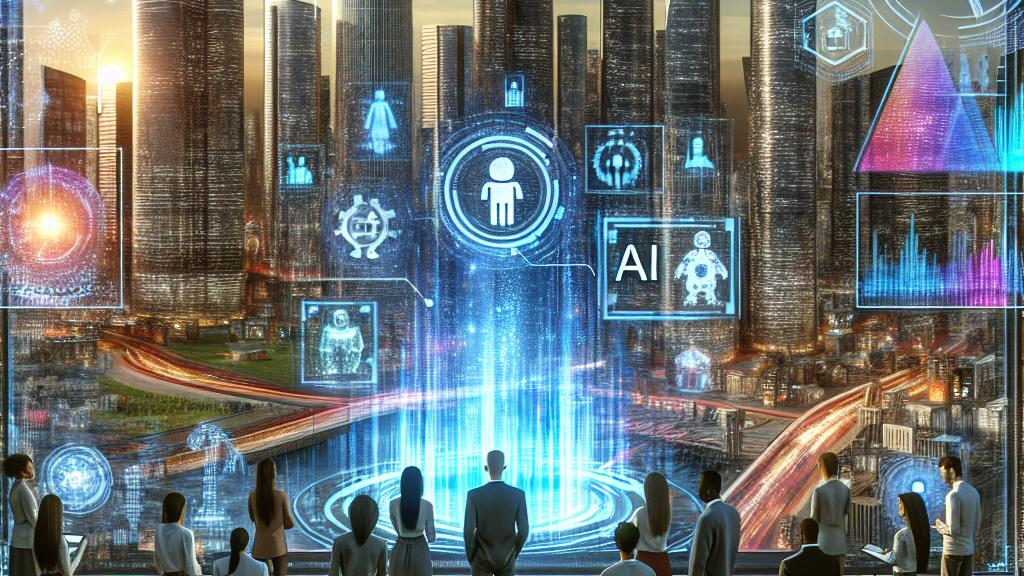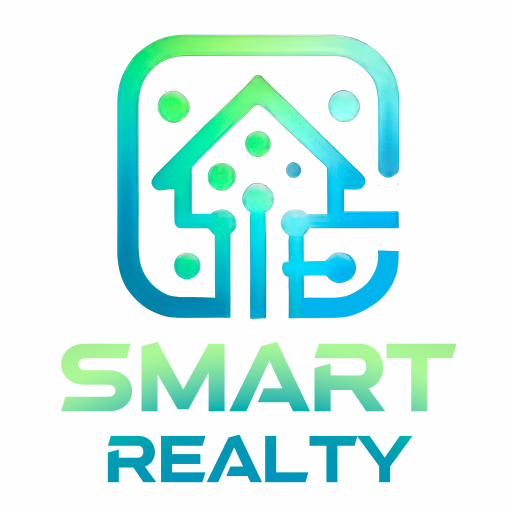Table Of Contents
Key Takeaways
- Real estate and artificial intelligence can work together to improve sustainability efforts in the industry.
- AI plays a significant role in influencing green building design practices, leading to more eco-friendly structures.
- Utilizing AI capabilities can enhance energy management in real estate, promoting efficient use of resources.
- The future of AI in real estate holds promising advancements in sustainability practices for a more environmentally conscious industry.
Understanding the Synergy of Real Estate and Artificial Intelligence
Artificial Intelligence (AI) has significantly transformed the real estate sector, offering innovative solutions that enhance sustainability practices. By integrating AI algorithms into real estate development and construction processes, the industry can address concerns arising from climate change. AI systems can optimize energy consumption in buildings by analyzing data on energy usage patterns, material composition, and traffic flow. Furthermore, AI contributes to green building practices by improving energy efficiency, selecting eco-friendly building materials, and enhancing the lifespan of building systems. Through data analysis and machine learning, AI offers solutions for maintenance, energy management, and waste reduction, ultimately promoting sustainable real estate development.


The Evolution of Real Estate in the Digital Age
Real estate development at this juncture is witnessing a shift towards embracing digital technologies and innovative solutions. The integration of AI in the real estate sector has the potential to revolutionize how properties are designed, managed, and utilized. By partnering with artificial intelligence, real estate developers can harness the power of AI analytics to gain valuable insights into aspects such as energy efficiency, waste reduction strategies, and sustainability measures. This evolutionary collaboration not only enhances the efficiency of management processes but also fosters a sustainable environment for future real estate projects.
In this dynamic landscape, the role of artificial intelligence goes beyond mere innovation to becoming a steward for sustainable real estate practices. AI implementation in real estate developments can champion waste reduction, recycling processes, and energy management with a focus on environmental stewardship. By leveraging AI’s image recognition capabilities, real estate developers and property managers can optimize waste management systems, increase recycling rates, and reduce reliance on landfills. Through AI’s potential in driving sustainable waste generation patterns and recycling rates, the real estate sector is poised to create greener, more eco-friendly buildings and foster a future where AI is a key partner in sustainable real estate development.
The Role of Artificial Intelligence in Reshaping the Real Estate Sector
Artificial Intelligence (AI) plays a pivotal role in reshaping the real estate sector by offering innovative solutions to enhance sustainability in property management. With AI technology, real estate professionals can explore novel ways to optimize energy use, design eco-friendly green buildings, and streamline building operations. By harnessing AI algorithms and tools, the industry can navigate the tightrope of balancing resource efficiency and construction viability in a rapidly changing climate. The integration of AI with real estate sustainability practices can provide valuable insights into energy optimization models, cost-saving strategies, and green building standards, setting a new vision for the future of the sector.
Real estate professionals are increasingly turning to AI technologies to tackle the post-construction challenges of building life cycles, from maintenance issues to energy management. AI’s ability to analyze data and predict trends can revolutionize the planning and operation of buildings, thereby contributing to the sector’s environmental impact and boosting sustainability practices. By leveraging AI tools, companies can enhance not only the energy efficiency of buildings but also the water conservation standards and waste management systems, aligning with the growing demands of the ESG movement. AI’s role in real estate extends beyond just business moves; it acts as a crucial part of the industry’s transformation towards sustainable practices, paving the way for green building innovations and resource optimization.
Green Building Design: AI’s Influence
Exploring the fusion of Green Building Design and AI is crucial in the realm of real estate sustainability. AI technologies hold the key to innovating eco-friendly practices within the real estate sector, especially in property management and building design. By leveraging AI in sustainable real estate practices, real estate investors can actively contribute to a greener future for communities. The role of AI is transformative in this journey towards sustainability, with breakthroughs in areas such as energy management and environmental efficiency being prominent factors. The incorporation of AI in green building practices not only enhances property values but also influences buyer decisions towards eco-conscious investments. Through the hands of AI, the landscape of real estate decision-making is undergoing a paradigm shift towards more sustainable and environmentally responsible practices.
Integrating AI with Green Building Architecture
AI is revolutionizing green building architecture by enhancing sustainability in real estate practices. Through the integration of AI technologies, including computer vision and AI algorithms, property assessments and building conditions can be analyzed with unparalleled accuracy. AI also contributes to climate control by providing valuable insights for energy management, ultimately leading to more efficient and environmentally friendly building operations. Additionally, the integration of AI in green building design allows for a seamless experience in property inspection, risk assessment, and decision-making processes, ensuring that real estate professionals have the tools they need to address sustainability challenges effectively.
Incorporating AI with green building architecture opens up new investment opportunities in the real estate sector. AI technologies enable real estate professionals to leverage data analytics and investment analysis tools to make informed decisions regarding property transactions and market trends. By collaborating with technology experts and leveraging AI algorithms, real estate professionals can enhance their decision-making processes and gain valuable insights into investment hotspots. Moreover, AI integration in green building architecture addresses hurdles related to maintenance schedules, automation, and building operations, offering solutions to balance sustainability and profitability in real estate ventures.
| AI Application | Benefits |
|---|---|
| Property Assessments | Accurate analysis of building conditions |
| Energy Management | Insights for efficient and environmentally friendly operations |
| Property Inspection | Seamless experience for risk assessment and decision-making |
| Data Analytics | Informed decisions for investment analysis and market trends |
| Maintenance and Automation | Solutions for sustainable building operations |
AI Innovations for Enhancing Building Sustainability
AI innovations play a pivotal role in enhancing building sustainability in the real estate sector. By leveraging AI technologies, real estate professionals can optimize energy management systems and improve the overall sustainability of properties. AI applications enable the analysis of energy consumption patterns, offering insights that aid in reducing carbon footprints and enhancing energy efficiency. Additionally, AI can contribute to the development of green building practices, promoting eco-friendly initiatives within the industry. With AI’s assistance, real estate professionals can explore sustainable practices that align with environmental concerns and market dynamics.
In the realm of real estate sustainability, AI presents an opportunity for significant growth and positive societal impact. Through the implementation of AI in property management, real estate developers can address concerns related to affordability and accessibility. AI technologies facilitate the planning and development of sustainable properties, bridging the divide between environmental responsibility and profitability. By integrating AI into real estate practices, investors and industry leaders can capitalize on the game-changing potential of AI for maximizing profits while contributing to climate change mitigation efforts.
Energy Management in Real Estate through AI Capabilities
Real estate developers and property managers are increasingly turning to artificial intelligence (AI) technology to optimize energy consumption in buildings. AI can help in sustainable real estate practices by providing valuable insights into energy usage, allowing for more efficient energy management. By incorporating AI into real estate portfolio management, businesses can not only reduce energy costs but also promote eco-friendly building designs that align with sustainability goals. With AI’s potential to revolutionize energy management in real estate, the industry is witnessing remarkable developments that aim to fight against excessive energy consumption. From analyzing data sources to implementing AI-driven technologies, the integration of AI in energy management is paving the way for a more environmentally conscious real estate market.
Artificial Intelligence for Energy Efficiency Maximization
In the realm of real estate sustainability, the integration of AI technology can significantly impact energy efficiency maximization. By leveraging AI’s capabilities, property management decisions can be optimized to enhance sustainability practices. AI’s role in energy management goes beyond mere automation; it delves into efficient maintenance strategies and informed investment portfolio choices that align with green building design principles. Through the synergy of AI and sustainability in real estate, the industry can witness a paradigm shift towards eco-friendly practices that prioritize energy efficiency and environmental preservation.
Exploring the intersection of AI and sustainability in real estate endeavors reveals the potential for AI to revolutionize energy management in the sector. By incorporating AI systems, real estate professionals can improve building performance, reduce energy consumption, and make data-driven decisions that lead to greener outcomes. The use of AI in promoting energy efficiency not only benefits property owners but also contributes to the larger goal of sustainable real estate development. As AI continues to evolve, its applications in energy efficiency maximization hold great promise for transforming the way buildings are managed and maintained in a more environmentally conscious manner.
- Enhances property management decisions for optimized sustainability practices
- Offers efficient maintenance strategies for energy management
- Guides informed investment portfolio choices aligned with green building design principles
- Improves building performance through AI systems
- Reduces energy consumption with data-driven decisions
- Contributes to sustainable real estate development
AI in Promoting Renewable Energy Use in Properties
Real estate sustainability is a crucial issue in today’s world, with increasing focus on environmental, social, and governance (ESG) measures. AI has stepped into the spotlight, offering possibilities to enhance sustainability data through generative AI, pattern recognition, and more. With AI’s role in sustainable real estate practices, the industry is witnessing advancements in energy management and green building design, benefiting both property market investors and building owners.
By leveraging AI in promoting renewable energy use in properties, real estate stakeholders can explore new avenues for enhancing sustainability. AI-driven insights can help identify patterns in energy data and optimize building use to reduce environmental impact. With AI’s predictive capabilities, property owners can make informed decisions to maximize energy efficiency, contributing to a more sustainable future for the real estate industry.
The Future of AI and Sustainability in Real Estate
Opportunities abound for AI and sustainability in real estate, poised to revolutionize industry practices and pave the way for a greener, more efficient future. AI can play a pivotal role in sustainable real estate practices, including energy management and green building design, offering a wealth of benefits for property owners and developers. By leveraging AI techniques such as natural language processing and pattern recognition, real estate stakeholders can optimize building performance, reduce energy consumption, and enhance ESG (environmental, social, and governance) management. For example, companies like McKinsey have reported significant improvements in energy efficiency and emissions reductions through the implementation of AI technologies. With the ability to analyze vast amounts of data and identify usage patterns, AI can help identify inefficiencies, drive cost savings, and guide investment decisions towards more sustainable outcomes. As the demand for ESG reporting compliance grows, AI holds the key to streamlining data collection methods, improving comparability, and enhancing decision-making processes for investors and occupiers alike. By embracing AI and sustainability in real estate, industry players can unlock a world of possibilities for driving environmental goals, meeting regulatory requirements, and ensuring long-term value creation.


Opportunities Awaiting Sustainable Real Estate Development with AI
AI and Sustainability in Real Estate offer a myriad of promising opportunities for the future of the industry. By leveraging AI technology, sustainable real estate development can explore energy management, green building design, and property eco-practices. AI’s capabilities can optimize areas such as temperature control, heating and cooling efficiency levels, airflow optimization, and more, ultimately contributing to enhanced sustainability practices. Moreover, AI can assist in environmental impact assessments, ESG disclosures, and stakeholder due diligence processes, providing valuable insights to firms, asset owners, and entities in the real estate sector.
In addition to supporting energy efficiency and green building practices, AI in real estate sustainability can enhance climate change concerns by aiding in the collection, assessment, and documentation of environment-related data. By leveraging AI visualizations and data collection mediums, firms and asset managers can gain a comprehensive standpoint on sustainability criteria, governance elements, and the reliability of sustainability reporting. Through AI’s potential to screen and analyze vast amounts of data (up to 90% of documents), asset owners and managers can make informed decisions on acquisitions, energy efficiency improvements, and sustainability disclosures, further advancing the industry towards best practices and environmental stewardship.
Anticipated Challenges in Augmenting AI and Sustainability in Real Estate Practices
Real estate investors and industry stakeholders face challenges in harnessing AI technology to support sustainability claims and navigate the evolving landscape of real estate sustainability. The context in which AI is applied must adhere to industry standards and best practices to avoid harming the industry’s reputation. Concerns over greenwashing, where claims of sustainability are exaggerated or misleading, fuel hesitancy among investors and lenders. To address these fears, steps must be taken to validate AI-generated data gathered from sources like EPC ratings, BREEAM assessments, and other environmental metrics presentations into standardized formats that can be easily understood and compared across properties and regions.
Moreover, the lack of uniformity in AI’s ability to estimate and validate sustainability aspects poses a challenge for real estate professionals seeking to make informed decisions based on AI-generated data. The industry must focus on acquiring training data that represents a diverse range of properties and ownership structures to improve AI’s accuracy in predicting sustainability outcomes. Furthermore, the uptake of AI technology in real estate sustainability is essential to drive cost reductions and enhance eco-friendly practices. By integrating AI into property management processes, real estate professionals can demonstrate a commitment to sustainability and mitigate risks associated with non-compliance with environmental regulations.
Conclusion
The future of AI and sustainability in real estate is a promising endeavor that offers numerous benefits to stakeholders in the sector. As we continue to explore how AI can contribute to sustainable real estate practices, the alignment between AI applications and the need for climate change mitigation and adaptation becomes increasingly crucial. Stakeholders, including property investors, community members, and real estate actors, must address important questions surrounding data ownership rights, regulations, and trust in AI solutions. By incorporating AI algorithms and language models (LLMs) into decision-making processes, real estate assets can be managed in a more sustainable manner, benefiting both the environment and the community. Furthermore, the adoption of AI in building certifications and renovation projects can significantly enhance the eco-friendly aspects of real estate properties. As we navigate the evolving landscape of AI and sustainability in real estate, it is essential to prioritize transparency, data accuracy, and ethical considerations to ensure that the benefits of AI are maximized for all involved.
FAQS
How can artificial intelligence contribute to sustainable real estate practices?
Artificial intelligence can contribute to sustainable real estate practices by optimizing energy management, enhancing green building design, promoting energy efficiency, and facilitating the use of renewable energy sources in properties.
What is the role of AI in reshaping the real estate sector?
AI plays a crucial role in reshaping the real estate sector by revolutionizing processes such as property management, energy optimization, building design, and decision-making based on data analytics.
How does AI influence green building design?
AI influences green building design by analyzing data to optimize building layouts, materials, and systems for maximum sustainability, energy efficiency, and environmental impact reduction.
What opportunities are available for sustainable real estate development with AI?
Sustainable real estate development with AI offers opportunities for improving energy management, optimizing building sustainability, reducing carbon footprints, and enhancing overall environmental performance of properties.
What are some anticipated challenges in augmenting AI and sustainability in real estate practices?
Anticipated challenges in augmenting AI and sustainability in real estate practices include data privacy concerns, implementation costs, technological limitations, regulatory barriers, and the need for specialized expertise in AI applications for real estate.

